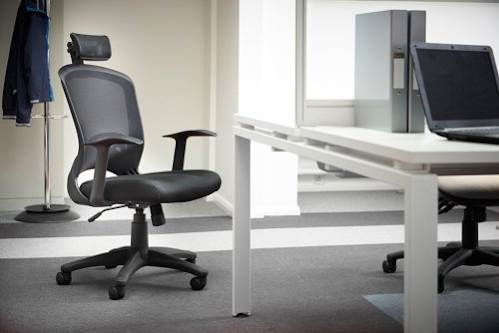Seamless Office Transition: Decommissioning and the Right Boardroom Table
This article explores the importance of efficient office decommissioning and
how investing in the right office furniture can support a professional and
productive workplace.
What is Office Decommissioning?
Office decommissioning is the process of safely closing
down an existing office space. It involves removing furniture, technology, and
equipment, restoring the premises to its original condition, and ensuring all
contractual obligations are met.
Businesses undergo decommissioning for various reasons, including:
·
Office relocation
·
Downsizing operations
·
Company mergers or acquisitions
·
Lease terminations
·
Upgrading to a modernized workspace
Proper office decommissioning is essential to avoid penalties, manage assets
responsibly, and maintain a company’s reputation.
Why Office Decommissioning Matters
1. Compliance with Lease Agreements
Most commercial leases require tenants to return the office space to its
original state before vacating. Professional office decommissioning ensures
that everything — from furniture removal to minor repairs — is handled
correctly to avoid potential legal and financial consequences.
2. Sustainable Disposal Practices
Environmentally responsible companies prioritize sustainable practices.
During decommissioning, unwanted office furniture and equipment can be
recycled, donated, or repurposed, minimizing environmental impact.
3. Cost-Effectiveness
Engaging experts in office decommissioning can save significant time and
money. Efficient handling of furniture, IT equipment, and documents reduces
moving costs and streamlines operations.
4. Smooth Transition to New Spaces
An organized decommissioning process ensures minimal disruption to daily
business activities. Employees can focus on core responsibilities without being
burdened by logistical challenges.
The Role of Office Furniture in a Productive Environment
As businesses relocate or redesign their offices, thoughtful furniture
selection becomes a top priority. Office furniture shapes not just aesthetics
but also functionality, employee comfort, and client impressions.
Importance of Choosing Quality Office Furniture
High-quality office furniture supports ergonomics, boosts productivity, and
creates a welcoming atmosphere for both employees and visitors. Investing in
durable and stylish pieces demonstrates professionalism and forward-thinking
leadership.
Spotlight: Choosing the Perfect Boardroom Table
The boardroom table is
often the centerpiece of a corporate environment. Whether you're conducting
high-level meetings, client presentations, or team discussions, the boardroom
table sets the tone for collaboration and decision-making.
Key Factors to Consider When Selecting a Boardroom Table
1. Size and Shape
Choose a table that fits the room's dimensions comfortably, allowing easy
movement around it. Popular shapes include rectangular, oval, and boat-shaped
designs — each promoting different styles of interaction.
2. Material and Finish
Opt for durable materials like hardwood, laminate, or glass depending on
your company’s branding and aesthetic goals. High-quality finishes reflect
professionalism and long-term investment.
3. Technology Integration
Modern boardroom tables are equipped with built-in cable management, power
outlets, and multimedia connections, enabling seamless virtual meetings and
presentations.
4. Seating Capacity
Ensure the table accommodates the number of participants typically involved
in your meetings, with additional space for guests when needed.
Boardroom Tables as a Statement Piece
Beyond practicality, a boardroom table reflects the organization’s brand
identity. Sleek, well-crafted tables convey stability, ambition, and attention
to detail — all qualities that inspire client confidence and employee pride.
How Office Decommissioning and Furniture Selection Work Together
When planning a transition, synchronizing office decommissioning with new furniture
acquisition ensures a cohesive move. Early planning helps identify what items
can be repurposed and what needs replacement.
For instance:
·
Outdated or damaged furniture can be responsibly
disposed of.
·
Critical pieces like the boardroom table
can be updated to reflect the company’s evolving culture and technological
needs.
·
Efficient timelines prevent operational downtime
and employee inconvenience.
Best Practices for Office Decommissioning Success
1. Start Early
Begin planning your decommissioning process several months in advance. This
timeline allows for inventory assessments, vendor coordination, and unforeseen
challenges.
2. Create a Comprehensive Inventory
Document all furniture, technology, and fixtures to decide what should be
moved, sold, recycled, or disposed of.
3. Engage Professional Services
Hiring office decommissioning specialists ensures compliance with building
regulations, proper disposal practices, and minimal business disruption.
4. Prioritize Sustainability
Donate reusable furniture to charities, recycle electronics, and minimize
landfill waste whenever possible.
5. Communicate with Stakeholders
Inform employees, clients, and vendors about decommissioning timelines and
any expected disruptions.
Final Thoughts
A successful office transition involves more than just moving desks and
chairs. Office
decommissioning is a critical process that protects your
company legally, financially, and environmentally. Simultaneously, investing in
the right office furniture — especially
a statement-making boardroom table enhances your brand image and supports
future growth.




Comments
Post a Comment